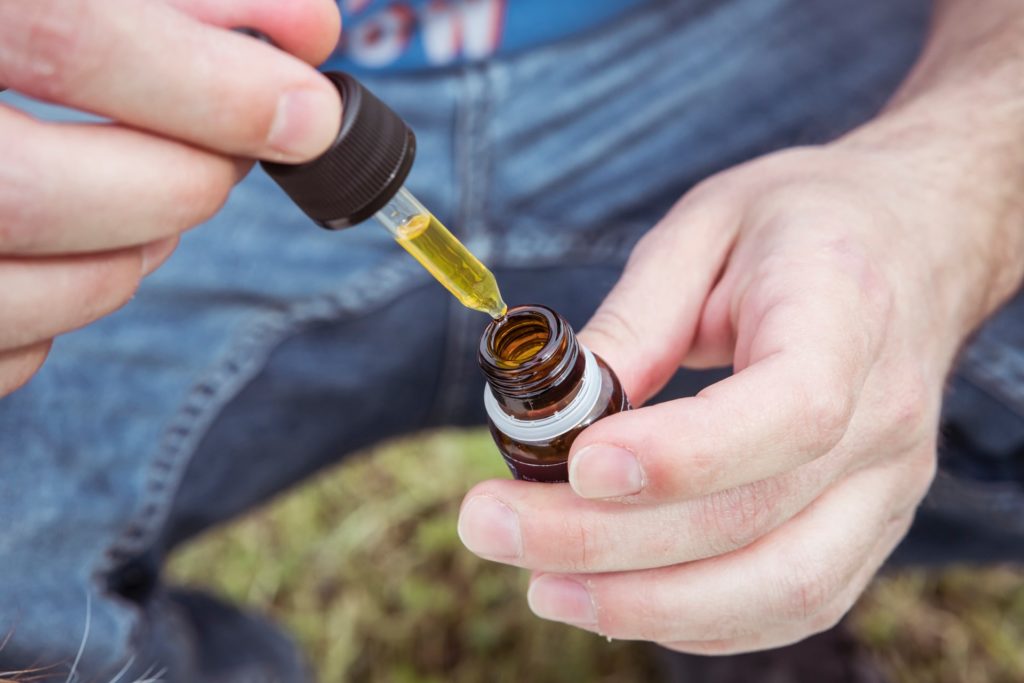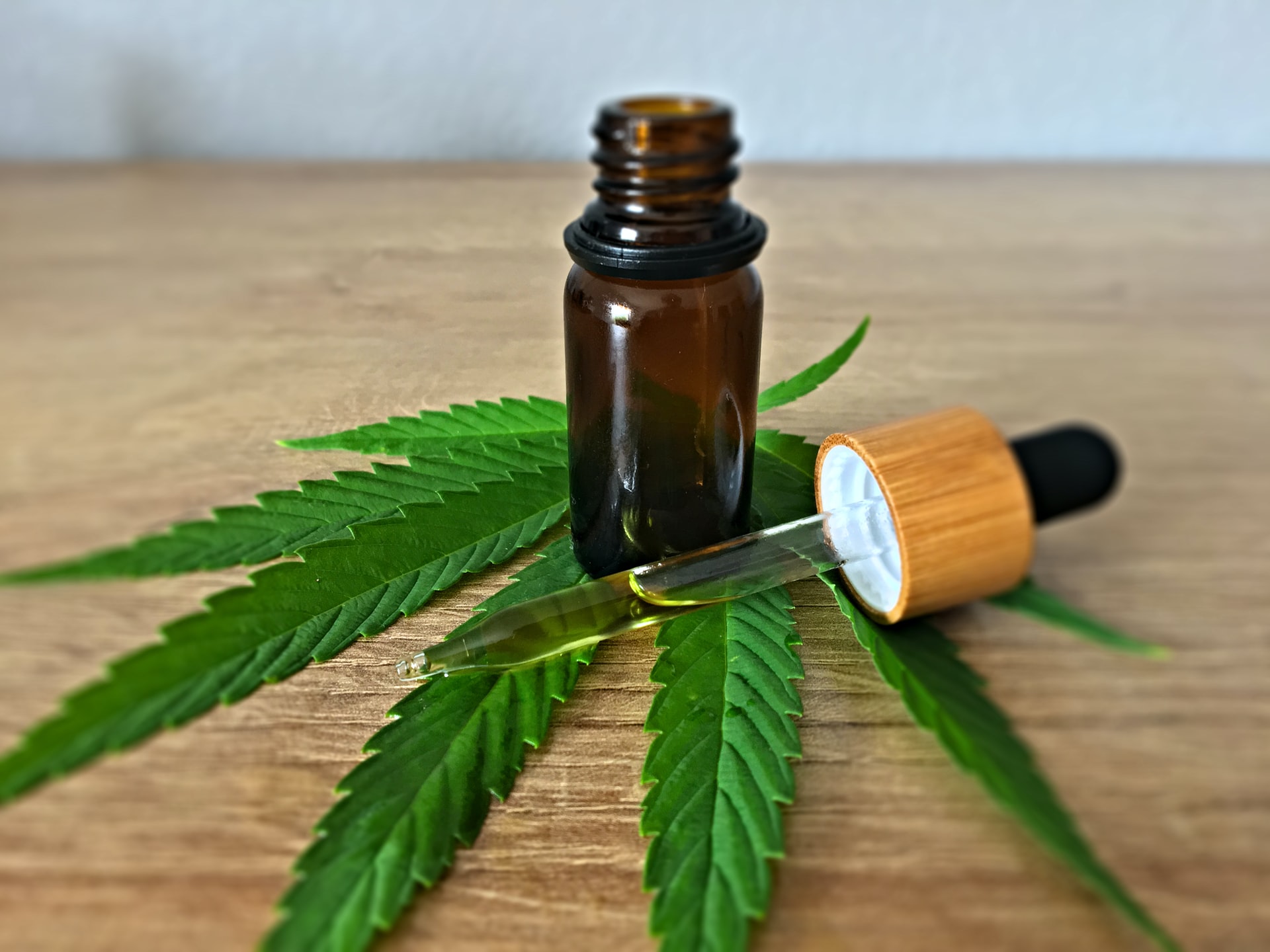CBD oil is currently one of the most talked about health and wellness products in the market. Understandably, there’s been a lot of debate as to whether it really works or not. In this guide, we’ll look at the benefits of CBD oil and answer some of the most frequently asked questions about it.
Benefits of CBD Oil
Reduces Anxiety, and Depression
CBD oil can help with anxiety and depression by interacting with serotonin receptors in the brain. The National Institute of Mental Health (NIMH) estimates that one in six Americans suffer from some form of mental illness, with anxiety disorders being the most common type. According to the Anxiety and Depression Association of America, over 40 million people currently live with an anxiety disorder.
The way CBD interacts with serotonin receptors is unique; it doesn’t directly bind to them like other drugs used to treat anxiety like SSRIs (selective serotonin reuptake inhibitors) or benzodiazepines. Instead, it seems to inhibit something called fatty acid amide hydrolase (FAAH), which breaks down anandamide (AEA), one of your body’s natural cannabinoids that helps balance out your endocannabinoid system (ECS). Simply put: CBD oil reduces anxiety by increasing levels of AEA.
Enhance Mood and Sleep Quality
According to the National Sleep Foundation, roughly 60 million Americans suffer from insomnia or other sleep disorders. Sleep is integral to optimal health, and it’s vital for healthy aging.
CBD has been shown in studies to improve sleep quality by stimulating the production of melatonin, a hormone that regulates sleep patterns. CBD oil may also help to reduce anxiety and stress, two factors that can contribute to insomnia. It can also help improve sleep apnea, a condition that causes interrupted breathing during sleep.
In addition, CBD oil has been shown to improve moods by increasing serotonin levels in the brain, the neurotransmitter responsible for regulating positive emotions and moods.
Lower Inflammation and Pain

Studies have shown that CBD oil can help reduce chronic and acute inflammation and chronic pain associated with health conditions like multiple sclerosis and arthritis. . This is because CBD oil activates the body’s natural cannabinoid receptors, which helps combat inflammation and pain.
CBD is also known to provide relief for inflammatory and neuropathic pains, which are caused by damage to the nervous system. These pains differ from each other in terms of their intensity, duration, and location. Inflammatory pain is characterized by swelling and redness caused by tissue damage. Neuropathic pain occurs when nerves are damaged or inflamed, causing sensations like burning or numbness. In both cases, CBD oil can be seen as a viable alternative to painkillers.
Reduces Social Discomfort
According to the Anxiety and Depression Association of America, social anxiety disorder is the third-largest mental health care problem in the United States. Current treatment methods for this condition include psychotherapy, medication, and support groups.
However, some individuals with this disorder have turned to CBD oil as a possible alternative. CBD oil is not a treatment or cure for social anxiety, but it can help alleviate some of the symptoms of this condition.
Studies show that it can help reduce social discomfort in people with various conditions, such as anxiety and autism. This means that CBD could help improve the quality of life for people with these conditions by reducing their symptoms.
Boost Immune System Function
The immune system is the body’s natural defense against disease and infection. It’s made up of white blood cells, antibodies, and other proteins that fight off foreign invaders. When your immune system is functioning well, it keeps you from getting sick.
CBD oil has been shown to help boost your immune system function. In one study, CBD oil was able to improve the function of white blood cells in people with leukemia. White blood cells are an important part of the immune system and help fight off infection. Another study found that CBD oil was able to reduce inflammation in mice that were given a bacterial toxin. This suggests that CBD oil may help protect against some infections.
Improves Appetite
One of the many benefits of CBD oil is that it can help improve your appetite, which can be a huge help for those struggling with eating disorders like anorexia and bulimia. For people with these disorders, CBD oil can help to normalize hunger cues and make it easier for them to eat regular meals.
CBD oil’s ability to improve appetite is important not just for individuals struggling with eating disorders but also for those who are trying to recover from other illnesses that cause a loss of appetite. For example, cancer patients undergoing chemotherapy often struggle with a lack of appetite due to the side effects of the treatment. CBD oil can help these patients regain their appetites so that they can get the nutrients they need to fight their illness.
CBD oil can also help with other appetite-related issues like nausea, making it a great choice for cancer patients or anyone who struggles with appetite.
Lowers High Blood Pressure
CBD oil benefits can be incredibly helpful when it comes to lowering high blood pressure. CBD is a vasodilator, which means it relaxes blood vessels and allows for greater blood flow. This can lower blood pressure, which in turn reduces the risk of heart attack and stroke.
Helps With Skin Conditions
CBD oil is effective in treating a variety of skin conditions. It is known to help with conditions such as psoriasis, as it reduces inflammation. It can be used to reduce the inflammation associated with atopic dermatitis, which is also known as eczema.
In addition, CBD oil can help reduce acne breakouts by regulating the overproduction of sebum in the skin, and it can stimulate the production of collagen, which is known to assist with improving fine lines and wrinkles.
Reduces Muscle Spasms
CBD oil is said to have the ability to help with muscle spasms. Muscle spasms are caused by a variety of things, including injuries, low blood sugar levels, and even stress. They can be debilitating and painful, but using CBD oil can help reduce their frequency and intensity.
Help With Substance Abuse Disorders
One of the most studied uses for CBD oil is helping with substance abuse disorders, including alcohol, cigarettes, and drugs.
Studies have found that CBD oil can reduce the intoxicating effects of alcohol and can even help prevent hangovers. They have also shown that CBD oil may help people who are dependent on opiates by reducing their cravings for painkillers.
Help With Drug Withdrawal

CBD oil is not a cure for drug addiction, but it can help with the withdrawal process. After someone stops using drugs, they may experience certain symptoms such as anxiety, depression, and insomnia. CBD oil can help to reduce these symptoms and make the transition to sobriety easier.
Anti-Seizure Properties
If you or someone you know has epilepsy, CBD oil may be able to help. CBD is a natural anti-seizure compound that’s been shown to reduce the severity of seizures and even reduce their frequency. This is because it interacts with the endocannabinoid system, which regulates things like mood, sleep cycles, and pain perception.
CBD works by binding to receptors in your brain called CB1 receptors (which are found in high amounts in parts of the limbic system). It binds these receptors and activates them, which then reduces inflammation throughout your body while also increasing endocannabinoids like anandamide. When these levels rise, they exert their effects on neurons that regulate your moods, making you feel relaxed instead of anxious.
Neuroprotective Properties

CBD oil has been shown to have neuroprotective properties. This means that it can help protect the brain from damage, slow down the development of Alzheimer’s disease, and improve memory and learning ability.
CBD oil can also be used to alleviate symptoms of mental health issues like post-traumatic stress disorder (PTSD).
Frequently Asked Questions
How do I use CBD oil?
There are several ways that you can consume CBD oil. One of the most popular ways is by taking drops under your tongue or by vaping the oil into your lungs, which allows for immediate absorption into your bloodstream without having to wait for digestion like eating or drinking does.
You can also add the oil to foods or drinks like smoothies or coffee. Just make sure you don’t heat up either one too much before adding them together so they don’t lose their potency.
You can also rub CBD oil directly into your skin, which is great for localized pain relief or if you want to provide some extra nourishment to an area of dry skin.
What are the side effects of CBD oil?
The side effects of CBD oil are minimal and usually only occur when you consume too much. This can happen if you take a lot of CBD oil at once or drink it in combination with other high-CBD foods or supplements.
The most common side effects are dry mouth, diarrhea, drowsiness, changes in appetite, vomiting, and fatigue.
How much CBD oil should I take?
There is no one-size-fits-all answer to this question, as the amount of CBD oil you should take depends on various factors, including your weight, age, and health condition. However, it is recommended that you start with a low dosage and increase it gradually until you find the right dose for your body.
Can you get high from taking CBD oil?
Most people don’t experience any psychoactive effects from taking CBD oil, as it does not contain THC, which is the cannabinoid responsible for the “high” feeling.
What CBD oil is good for inflammation?
CBD oil is known to be effective in reducing inflammation, and terpenes are thought to increase its efficacy. A high concentration of terpenes may also help mask CBD oil’s taste, making it more palatable for people who do not like the taste of hemp.
Generally speaking, CBD oil with a high concentration of terpenes is thought to be more effective in reducing inflammation.
What is CBD oil without THC good for?
CBD oil is good for a variety of things, including reducing anxiety and promoting relaxation. Additionally, CBD oil without THC is also effective at reducing seizures and alleviating the symptoms of various medical conditions.
What is CBD oil hemp balm good for?
CBD oil hemp balms are especially good for treating dry or damaged skin. They are an all-natural alternative to chemical skin creams, which can often have harmful ingredients in them that can make your skin worse. CBD oil hemp balm is also rich in antioxidants, which fight free radicals and help keep your skin young.
Can I take CBD oil with other medications?
CBD oil is known to interact with certain medications, so it is important to consult your healthcare provider before taking it.
Disclaimer
The statements expressed on this website are purely opinion of the author and not factual. These statements have not been evaluated by the Food and Drug Administration. Any products referenced on this website are not intended to diagnose, treat, cure, or prevent any disease. It’s highly suggested to consult with your medical professional prior to any use of the products referenced on this website. This website and author specifically disclaim any liability in connection with the products contained on the website.

